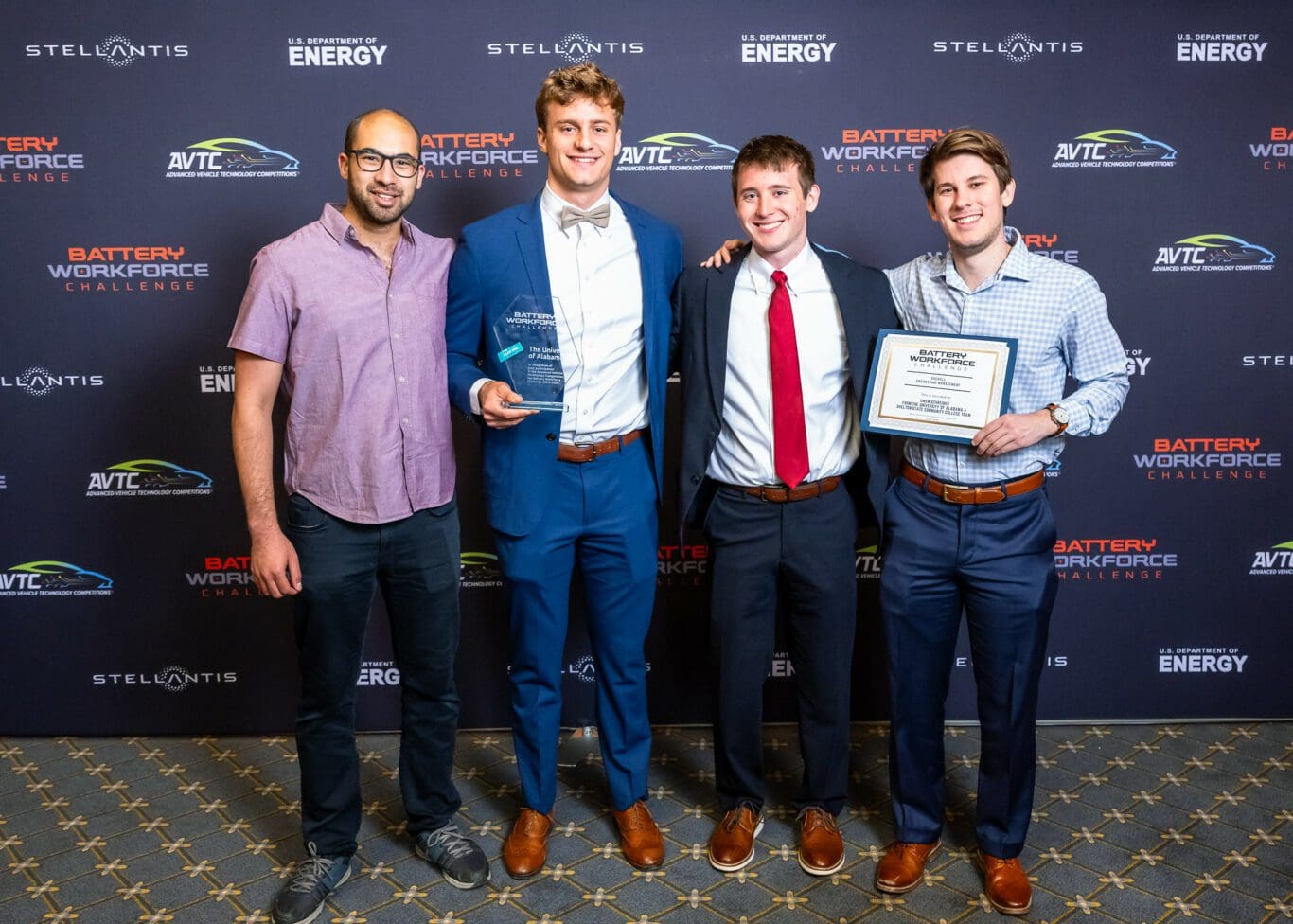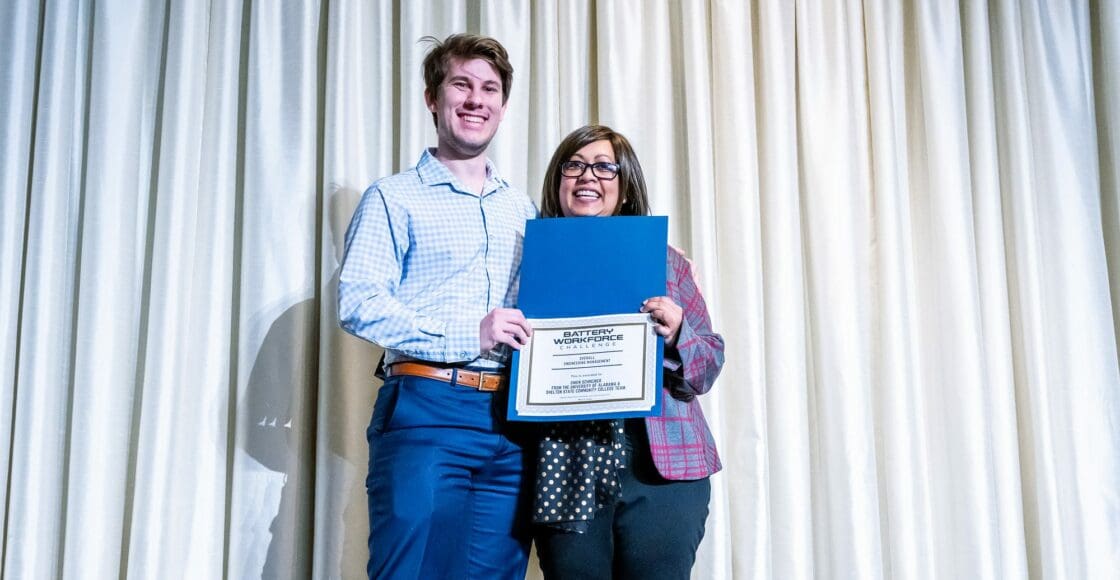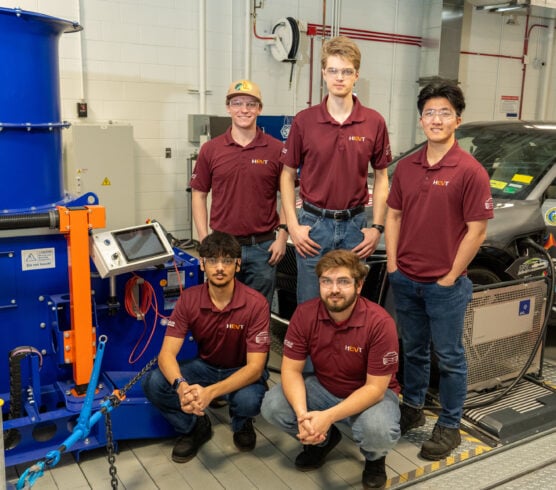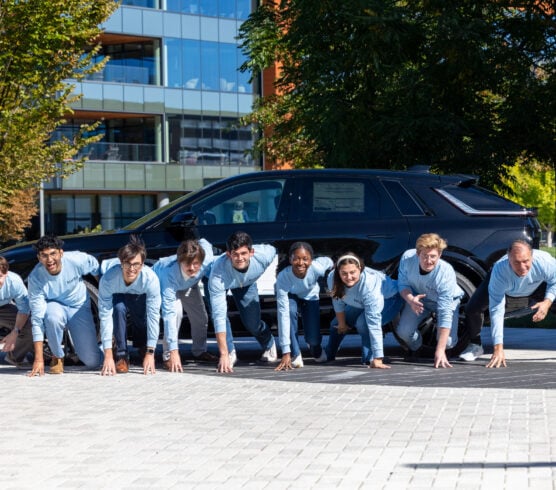By Em Jankauski
When a relay runner crosses the finish line, it’s a victory for not just that runner but all four teammates who passed the baton to one another throughout the race. For Owen Schreiber, winner of the Battery Workforce Challenge Year One Competition’s Overall Engineering Management Award, he looked no further than his own teammates to when giving credit after crossing the finish line helping carry his team secure a third-place overall finish.
Let’s catch up with the vehicle systems integration lead from The University of Alabama & Shelton State Community College BattChallenge team in a fun Q&A
***

Q: What does this award mean to you?
A: “Earning this award has been a great honor, and I feel it is a testament to the hard work that not only I put in, but also to the hard work of team leads Shane Vanderhagen, Ahmed Bakr and Lukas Kiesewetter. Through our combined effort, we were able to effectively educate and incorporate team members on the project, which ultimately enabled The University of Alabama & Shelton State Community College BattChallenge team to achieve its high placement in the first year.”
Q: You’re being recognized for your exemplary engineering management. What is your secret sauce in providing exceptional management, mentorship and guidance to your team?
A: “I’d say the secret sauce is communication and believing in my leads and team. I would assign my leads tasks and clear deadlines, keeping in constant communication throughout the problem-solving process; but otherwise, I let them approach the problem as they best see fit. By maintaining good channels of communication, I could assist in clearing any roadblocks encountered. But by giving them the freedom to approach the problem in their own way, they could innovate and create solutions quickly. This also allowed me to effectively lead without working myself silly.”
Q: How do you hope your involvement in the BattChallenge not only prepares you for your future but also your prospects of becoming a game-changer in the EV battery workforce?
A: “The Battery Workforce Challenge has prepared me for the future by giving me the tools and confidence to expand my leadership and teamwork abilities.
“I believe any industry requires leadership and teamwork capabilities, but those traits are especially needed for the electric vehicle battery workforce due to the highly multi-disciplinary aspect that is inherent in EV battery manufacturing. For example, you have the thermal management system controlling the temperature of the battery, a primarily mechanical engineering problem, and the active balancing between cells being performed to ensure even state-of-charge, an electrical engineering problem, and then because both design aspects are intrinsically linked to each other, you need computer scientists/engineers for the communication between these two systems. Additionally, down at the cell level, your cell chemistry can drastically affect the operation performance of your battery pack, so chemical engineers/chemists are needed to consider the chemical makeup of the cell that will go into the overall assembly.
“It’s a very complicated problem, but I foresee using the leadership skills I’ve learned to eventually organize my own research team so I can contribute to the advancement of this complex subject.”




